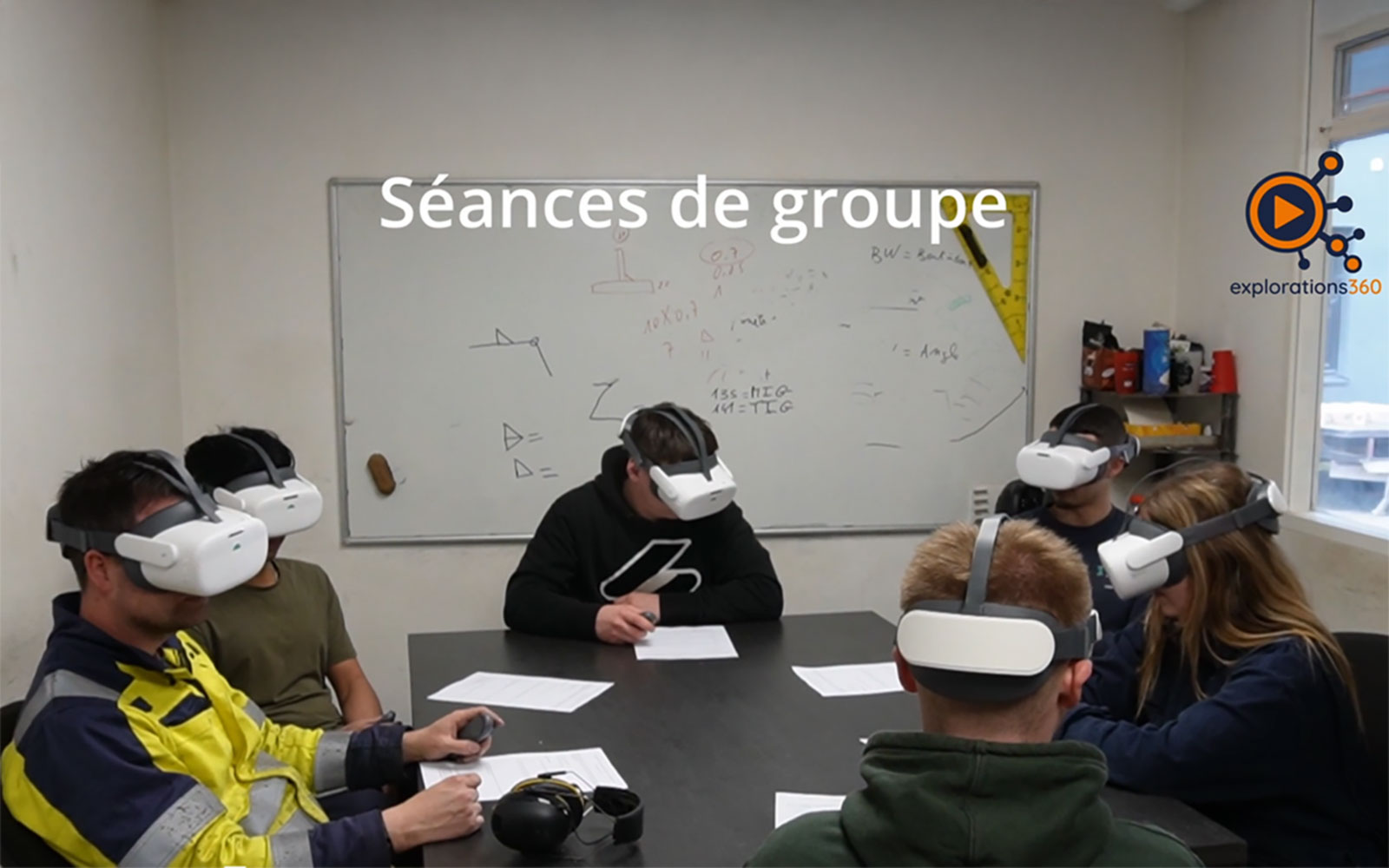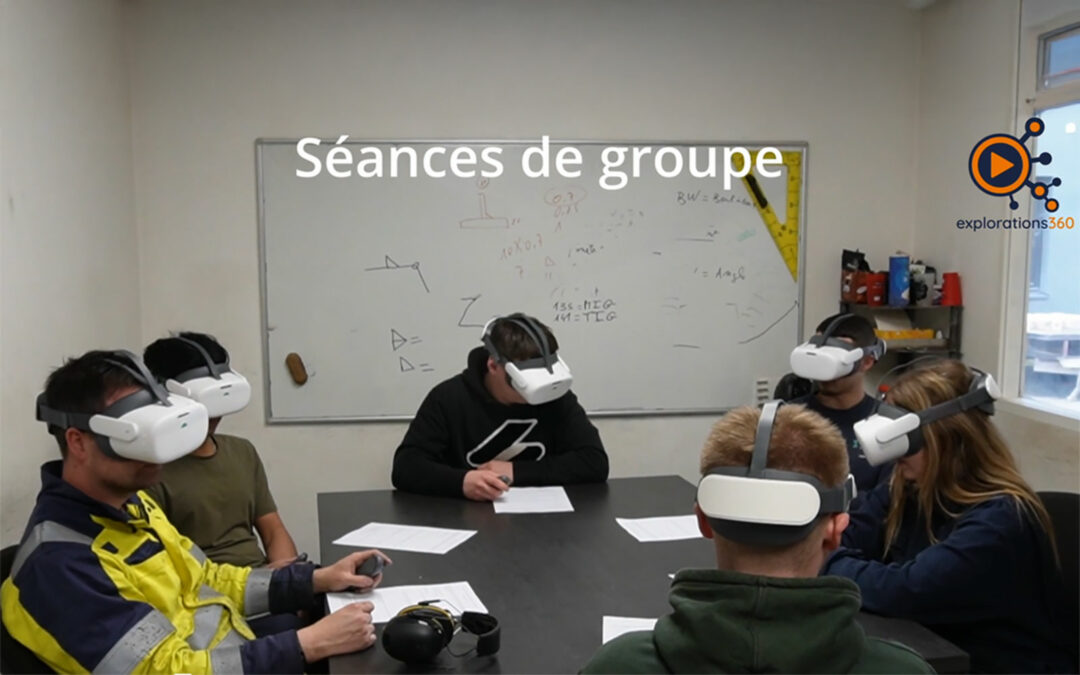Immersive training: here are a few serious and regularly cited studies showing that virtual reality (VR) significantly improves the rate of information retention in a training context:
Academic studies & meta-analyses for immersive training
-
A meta-analysis in education (K-12 and higher) reveals that immersive VR environments offer significant gains on knowledge tests, far more effective than conventional videos or slideshows.(PDF LINK)
-
An engineering study by Lin et al (2023) shows that after mechanical assembly training, in VR training, one group obtained the highest post-test scores, higher than those of the desktop VR or physical training groups(LIEN).
-
A comparison between VR training, desktop VR, and slideshow presentation in food microbiology indicates that VR promotes long-term retention: students show more visual attention and lasting memory (LINK).
Abstract I/ITSEC 2022 - "Challenging the Status Quo in Nursing Education: Digital Transformation with Virtual Reality".
Authors: Juliet Kolde, Jeffrey Olsen, Jack Pottle, Molly Schleicher
Presented at I/ITSEC 2022, this study describes Nightingale College's multi-phase pilot program integrating immersive virtual reality (partnership with Oxford Medical Simulation + Meta Quest 2 headsets) within the distance learning nursing curriculum (PDF LINK and WEB LINK).
Key points of a 5-year hospital study from 2020 to 2025:
-
Progressive installation of VR simulations in all clinical courses in the licensing program.
-
Interactive immersive scenarios (diagnoses, treatments, interactions with virtual patients and their families), with personalized feedback, performance metrics and debriefing.
-
Very positive preliminary results for students' critical thinking and clinical reasoning.
-
Overall positive feedback from students: valued immersion, ability to repeat scenarios at will, greater confidence and less anxiety.
-
Significant gains as early as spring 2023, with an average jump of almost 10 points on the BSN 205 practical exam (first VR module), improving learners' preparation for real-life simulation. Average 5.9% better scores, up to +171 points on final exams.
-
Reduces costs and training time by ~40.
📈 Field studies & industrial reports
-
The University of Maryland (Varshney et al.) reports a 12% increase in median recall and an 8.8% increase in precision in VR compared to screen-based training (CBT)(LINK).
-
One week after the training, Transfr Inc. observed :
-
86% performance on tasks learned in VR versus only 71% with slide presentation (LINK).
-
-
PwC (2020) reports that VR learners are up to 4× more focused and enjoy a 75% retention rate, compared with 10% for reading and just 5% for lectures (LINK).

🌍 Recent research in schools
-
An international study (317 students in El Salvador, April 2025) shows that the VR group has a 35% increase in retention, compared with just 2.6% for the traditional group one week after training (LINK).
Example here: School bullying, 1 tool to raise awareness: VR
💡 To sum up
| Training mode | Information retention |
|---|---|
| Traditional reading | ≈ 5-10 % |
| Lectures / slide show | 10-20 % |
| Immersive VR training | 75-86 % |
On average, VR increases retention rates by a factor of 4 to 10 compared with conventional modes. The immersive aspect, with maximum concentration and active repetition, encourages deeper consolidation of knowledge.

💡 A credo: simplify life for 360° content producers with a universal "NoCode" tool that transforms images or videos into truly interactive immersive experiences!
🏁 My first brand, subOceana, was born in "a" metaverse, in 2007... 👂 And already with this idea: putting technology at the service of meaning and the human.
🏷 I've never really liked labels, headings, categories or other drawers: every community has its own language, every profession its own jargon, and depending on the world you're in or the people you meet, what makes sense 🧑🎓 in one case can turn out to be completely ridiculous 🥳 or outdated in another.
🤩 What I really like: spending hours testing, twisting tools, breaking established habits. Innovating*, not necessarily to make something new, but to make tech invisible and put it at the service of those who need it. Like when you spend time cooking a complicated dish, having in mind the pleasure of simplicity and conviviality 🥂 that will follow.
It's this technological conviviality that I seek to cultivate. And that's what we transmit at explorations360.
🕵♂️🕵♀️👨🚀👩🚀👨🚒👩🚒👷♂️👷♀️👨🎨👩🎨👨💻👩💻 A customer (ours are professionals), who can easily appropriate technology (in this case, virtual reality) and let it take a back seat to the experience and the message, will use it to increase their ability to create, train, communicate, share and inspire their own audience.
Virtual reality must not impress. It must transform.
At explorations360, we help hospitals, manufacturers, cultural players and training organizations to engage their teams, train effectively and pass on knowledge in new ways.
Thanks to a simple yet powerful platform, we have already helped more than 100 organizations create customized immersive experiences:
- Industrial safety courses
- Care habituation for the disabled
- Interactive cultural tours
- Experiential & inclusive tourism
- Immersive training for the food industry
What sets us apart?
- Our integrated production, scripting and support capabilities
We believe that technology should be replaced by the message.
==》You want to transform the way you train, communicate or raise awareness?
Contact me via the form or book an appointment via the DEMO button.
*Innovating: talking 6 months before others about things... that we've been doing for 10 years to general indifference, sometimes tinged with a little mockery 😉

